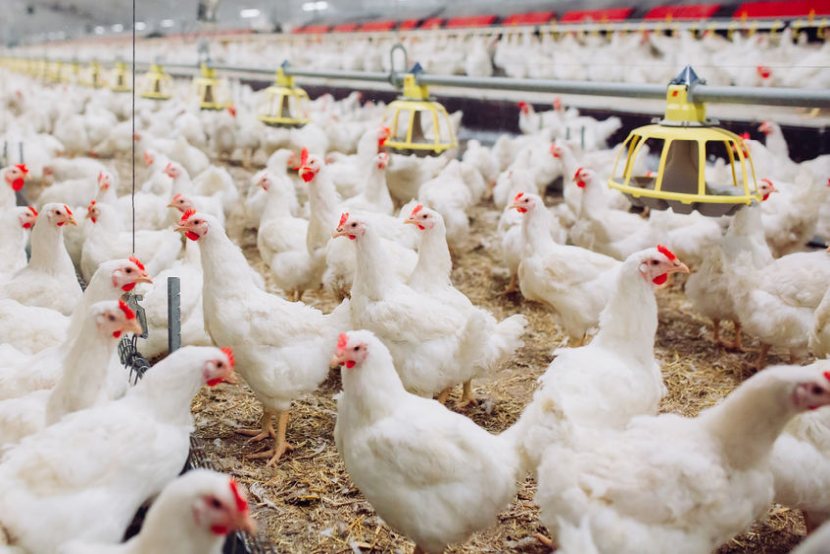
The poultry sector has reported a 10% decrease in throughput within the last few weeks because of a shortage of workers, the industry has warned.
Brexit and the pandemic have meant workers from the EU have returned to their own countries, in turn impacting the UK poultry meat sector.
The industry has called on the government to address what it calls the 'Brexit labour crisis' to ensure British food 'never diminishes'.
Poultry is half the meat the country eats, and the sector has grown significantly beyond the UK labour availability in the areas it operates.
Over half (60%) of poultry meat workers – 22,800 people – are nationals from European Union countries.
In the last few weeks alone, the industry has reported a 10% decrease in throughput because of the shortage of workers across farming and processing.
The British Poultry Council (BPS) has warned that limiting non-UK labour supply would 'jeopardise' food businesses and make access to British food 'harder'.
Chief executive Richard Griffiths said: “British food producers have shown phenomenal resilience and worked incredibly hard to feed the nation amidst the biggest crisis of our lifetime.
"Now is the time for the government to support British businesses to ensure that quality British food never diminishes.
"We cannot run the risk of creating a two-tier food system where we import food produced to lower standards and only the affluent can afford high quality British produce.”
Entry level roles, which require a Level 2 qualification, are where the sector is facing the greatest difficulty.
The sector also generally operates in areas of high local employment with a lack of available UK workers, with many showing 'negligible appetite' to move to other parts of the country.
And when it comes to non-UK labour – either from the EU or further afield – the industry has seen reducing numbers willing to come to the UK.
Mr Griffiths explained: “The immigration barriers of salary and skill have been raised way beyond what we can manage, and the cost of bringing people is being prohibitive.”
He said poultry meat businesses were determined to strike a balance between a skilled workforce and investing in innovation and technology.
While technology would create higher skilled jobs in the future, the industry would always be reliant on people, he added.
"Our sector has jobs that need skills, jobs that support our economy and communities, and jobs that ensure everyone has access to British food," Mr Griffiths said.
"The government must recognise food as a special case that is treated as a national security issue.
"Losing control of how we feed ourselves as a nation would undermine British food producers at a time when we should be looking to use Brexit as an opportunity to take matters of food security and nutrition into our own hands.”
It comes after a new University of Exeter report said there was an 'urgent need' to change the perceived image of farming in order to prevent 'disastrous' labour shortages.
Researchers said the perceived image of farming as a career – 'associations with low pay, long hours, and poor work-life balance' – needed to be reformed.
They also suggested that new entrants for permanent jobs in the industry should include people from a greater range of backgrounds, such as career changers and ex-offenders.
